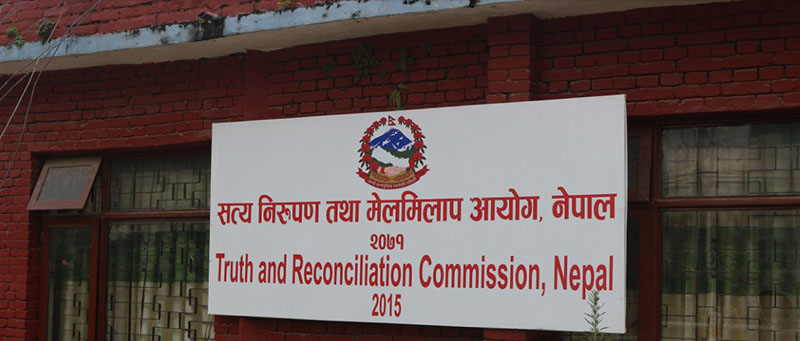Panel fails to meet as parties stick to their guns
Kathmandu, June 10
The recommendation committee led by former chief justice of the Supreme Court Om Prakash Mishra today failed to convene its meeting as political parties failed to reach consensus on seat sharing in the two transitional justice mechanisms — Truth and Reconciliation Commission and Commission of Investigation on Enforced Disappeared Persons.
The two commissions have remained vacant ever since their members retired on April 13.
The recommendation committee, formed on March 25, was supposed to prepare a list of probable candidates for the posts of chairpersons and members of TRC and CIEDP in today’s meeting from among the 57 applications it collected. But the meeting failed to convene after its Chair Mishra had to leave for India on ‘urgent work’, said the committee’s Spokesperson Sharmila Karki.
However, sources with knowledge of the developments said the meeting was deferred as short-listing of candidates would be fruitless without political consensus.
The major problem, according to sources, is that the parties — The Nepal Communist Party (NCP) and Nepali Congress — are sticking to their guns on the sharing of posts of chairpersons of the two commissions.
While the NC wants appointment of its nominee to the post of TRC chairperson, the NCP is in no mood to concede. The NCP is okay with the NC taking the chairmanship of CIEDP. The NCP and the NC, however, have tentatively agreed on sharing seats on 60:40 basis.
“Therefore, after the parties forward names of their nominees, the number of applicants will increase,” the source said, adding that it was unlikely that chairpersons of the commissions would be appointed from among the 57 applicants.
As per the selection process, the committee can list any eligible person’s name, even if that person has not filed application within the deadline, on the recommendation of a person or institution or at the committee’s own discretion, considering the special qualification and experience of that person.
The parties had previously agreed to finalise the appointments before Prime Minister KP Sharma Oli left for his Europe trip on June 8. Top leaders, including PM Oli, NCP Co-chair Pushpa Kamal Dahal and NC President Sher Bahadur Deuba held meetings on June 5 and 6 to finalise the issue, but failed to reach consensus.
The committee’s member Prakash Osti, however, denied any political intervention and said the selection process was taking time as they wanted to ensure appointment of competent chairpersons and members who could effectively lead the commissions. “We are doing homework honestly,” he said. Another pertinent issue in the transitional justice process is amendment to the Enforced Disappearances Inquiry, Truth and Reconciliation Commission Act - 2014.
Victims of the decade-long armed conflict have for long demanded that the act be amended in line with the Supreme Court verdict, as one of the major reasons for failure of the commissions to make significant progress in investigation is lack of necessary legislation. So they are of the view that the processes of act amendment and appointment of TRC, CIEDP members should be taken ahead simultaneously.
The SC, in its verdicts on different occasions, ruled that there should not be amnesty for grave human rights violations such as extrajudicial killing, enforced disappearance, torture, rape and other acts of sexual violence; the statute of limitations for grave offences must be removed; cases recommended by the TRC and the CIEDP must be prosecuted; torture and enforced disappearance must be criminalised through enactment of laws; cases before the court cannot be transferred to the TRC or the CIEDP; dignified and respectable reparation for victims; and no reconciliation without the consent of victims.
“A review has to be done on why the commissions failed so far and work to address the shortcomings by amending the act. Just appointing five members each in the commissions will not yield the desired results,” said Suman Adhikari, former chairperson of Conflict Victims Common Platform.
However, sources said the parties were positive on amending the act. They reached tentative understanding at the meetings of June 5 and 6 to immediately begin the process of act amendment once consensus is reached on the names of the chairpersons of the commissions.






